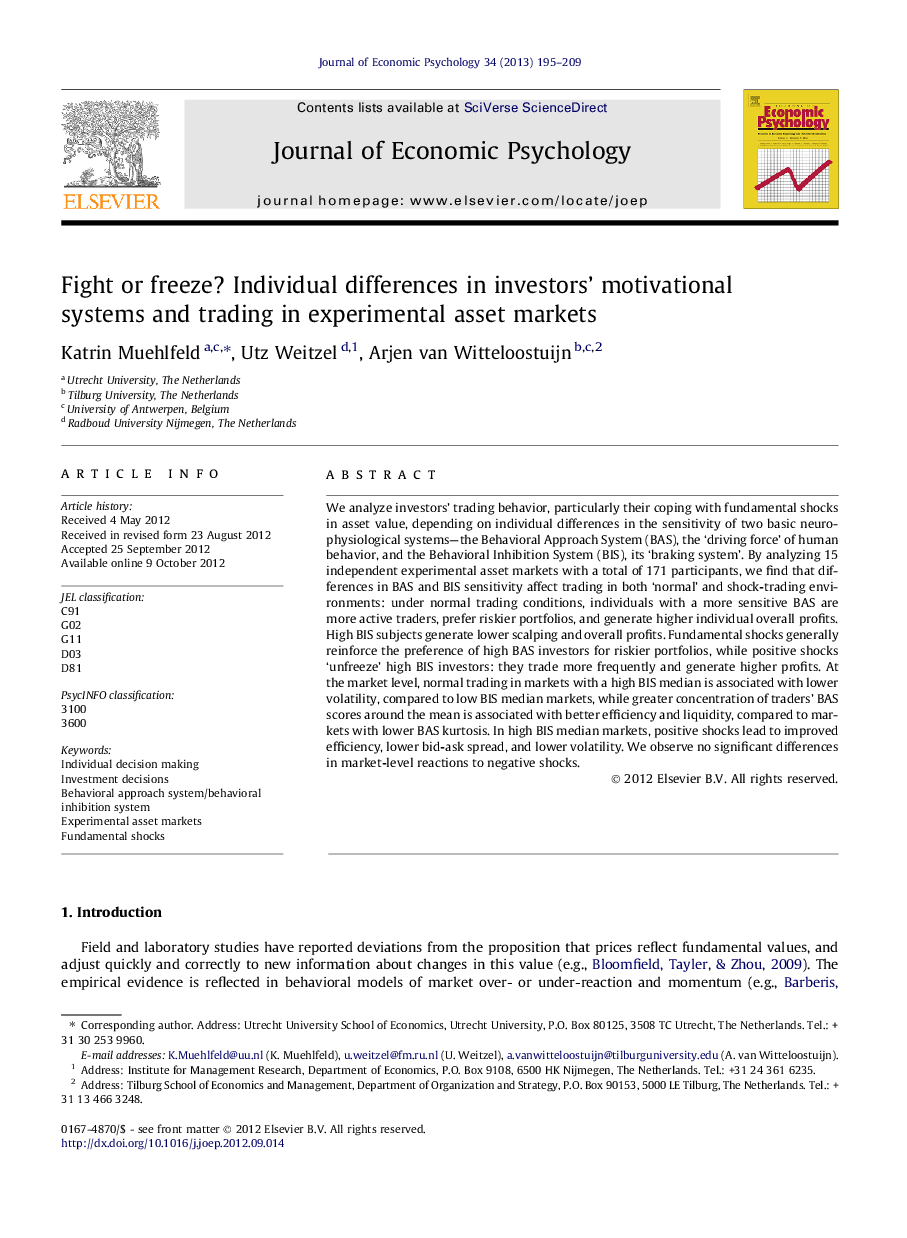| Article ID | Journal | Published Year | Pages | File Type |
|---|---|---|---|---|
| 885078 | Journal of Economic Psychology | 2013 | 15 Pages |
We analyze investors’ trading behavior, particularly their coping with fundamental shocks in asset value, depending on individual differences in the sensitivity of two basic neurophysiological systems—the Behavioral Approach System (BAS), the ‘driving force’ of human behavior, and the Behavioral Inhibition System (BIS), its ‘braking system’. By analyzing 15 independent experimental asset markets with a total of 171 participants, we find that differences in BAS and BIS sensitivity affect trading in both ‘normal’ and shock-trading environments: under normal trading conditions, individuals with a more sensitive BAS are more active traders, prefer riskier portfolios, and generate higher individual overall profits. High BIS subjects generate lower scalping and overall profits. Fundamental shocks generally reinforce the preference of high BAS investors for riskier portfolios, while positive shocks ‘unfreeze’ high BIS investors: they trade more frequently and generate higher profits. At the market level, normal trading in markets with a high BIS median is associated with lower volatility, compared to low BIS median markets, while greater concentration of traders’ BAS scores around the mean is associated with better efficiency and liquidity, compared to markets with lower BAS kurtosis. In high BIS median markets, positive shocks lead to improved efficiency, lower bid-ask spread, and lower volatility. We observe no significant differences in market-level reactions to negative shocks.
► We study how differences in motivational systems (BAS, BIS) affect trading behavior. ► We analyze 15 independent experimental asset markets with 171 participants. ► BAS is positively related to trading frequency, portfolio risk, individual profits. ► BIS is negatively related to individual profits. ► High BIS (BAS) median (kurtosis) markets are less (more) volatile (liquid).
